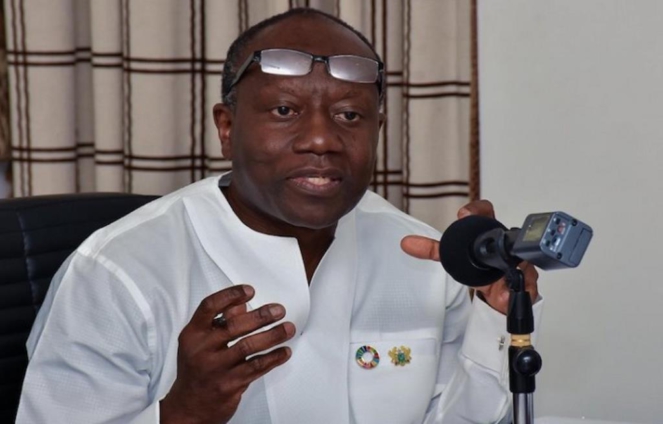Parliament has approved the controversial Agyapa Mineral Royalty Limited agreement with government despite a walkout by the Minority.
Two years ago, Parliament passed the Minerals Income Investment Fund Act 2018.
The act establishes the Minerals Income Investment Fund to manage the equity interests of Ghana in mining companies, and receive royalties on behalf of government.
The fund is supposed to manage and invest these royalties and revenue from equities for higher returns for the benefit of the country.
The law allows the fund to establish Special Purpose Vehicles (SPVs) to use for the appropriate investments. In July 2020, government introduced an amendment to the act to ensure that the SPVs have unfettered independence.
The Agyapa Minerals Royalty Agreement was eventually passed in conformity with this act of Parliament.
Since it's approval on August 14, 2020, civil society groups and the Minority in Parliament has demanded the deal is suspended claiming it's not in the interest of the country.
Here are 9 still lingering questions about the deal:
- Why has government incorporated Agyapa Minerals Royalties Limited in a tax haven islands, Jersey near UK to dodge taxes?
- Why does the current Finance Minister want to spend future revenue from gold royalties on behalf of whoever the next Finance Ministers over the next 15 years will be?
- If government wants to earn more from minerals royalties or needs upfront cash of $500 million, aren’t there other options to do this than inviting private participation in how gold royalties are spent? Can’t the state do anything profitable on its own without selling off national stakes to private people?
- What is the guarantee that the gold royalties are worth the US$1 billion that it has been priced at and not more? Who assessed it?
- Will Ghanaians ever know those who will buy the 49% stake in Agyapa on the Ghana and London Stock Exchanges, especially when Agyapa is incorporated in an island that offers high level of secrecy to investors?
- How much has government paid consultants, transaction advisors and lawyers managing the deal so far? How were they recruited? Couldn’t the Attorney General’s office have worked on the deal instead of relying on private law firms?
- Why are family members of the president, the senior minister and the finance minister involved in the deal as consultants and transaction advisors?
- To what extent were the chiefs and people in areas where gold is mined consulted before this deal was arranged?
- What is the guarantee that government will be able to raise the $1 billion it is looking for on the Ghana and London Stock Exchanges with all the “noise” that has characterised the agreement?
Latest Stories
-
Trinity Oil MD Gabriel Kumi elected Board Chairman of Chamber of Oil Marketing Companies
4 minutes -
ORAL campaign key to NDC’s election victory – North America Dema Naa
22 minutes -
US Supreme Court to hear TikTok challenge to potential ban
27 minutes -
Amazon faces US strike threat ahead of Christmas
60 minutes -
Jaguar Land Rover electric car whistleblower sacked
1 hour -
US makes third interest rate cut despite inflation risk
1 hour -
Fish processors call for intervention against illegal trawling activities
1 hour -
Ghana will take time to recover – Akorfa Edjeani
2 hours -
Boakye Agyarko urges reforms to revitalise NPP after election defeat
2 hours -
Finance Minister skips mini-budget presentation for third time
2 hours -
‘ORAL’ team to work gratis – Ablakwa
2 hours -
Affirmative Action Coalition condemns lack of gender quotas in Transition, anti-corruption teams
3 hours -
December 7 election was a battle for the ‘soul of Ghana’ against NPP – Fifi Kwetey
3 hours -
Social media buzzing ahead of Black Sherif’s ‘Zaama Disco’ on December 21
3 hours -
Afenyo-Markin still suffering from the massive defeat – Fifi Kwetey
3 hours

